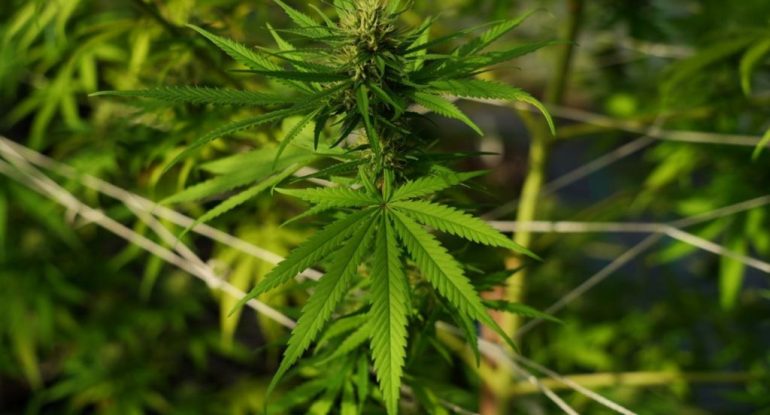Cannabis, also known as marijuana, has been a contentious subject in the United States for decades. Historically, its use has been stigmatized and heavily criminalized, disproportionately impacting marginalized communities. However, as more states move toward legalization and regulation, cannabis is emerging as a tool for social justice in the U.S. Through policy reform, economic opportunity, and racial equity, cannabis can help address past injustices and pave the way for a more equitable future.
A Global Perspective: THC Gummies in the UK
As cannabis continues to make strides in the U.S., the conversation is also expanding internationally. In the UK, where cannabis is currently not legal for recreational use, the use of THC-infused products such as gummies is gaining attention for potential medical use. While thc gummies uk are not yet available for general purchase, medical cannabis products, including THC-based treatments, are becoming more accessible. This global perspective underscores the importance of ongoing discussions around cannabis and its uses for social justice and medical purposes worldwide.
Historical Context
Cannabis has a long and complicated history in the U.S., particularly regarding its legal status and enforcement. The criminalization of cannabis can be traced back to the early 20th century when anti-drug campaigns targeted minority groups, especially Mexican immigrants and Black Americans, who were associated with its use. The Marihuana Tax Act of 1937 effectively prohibited the plant nationwide, while the War on Drugs in the 1980s led to harsh penalties for possession and distribution, disproportionately affecting Black and Latino communities.
The Path Toward Legalization
Over the past few decades, there has been a growing movement toward legalizing cannabis for medical and recreational use. As of 2024, over 30 states have legalized medical cannabis, and 23 states and Washington, D.C., have legalized recreational cannabis. This shift in policy has been driven by public opinion, which increasingly favors legalization due to changing perceptions of cannabis, the potential for tax revenue, and the desire to address past injustices.
Addressing Injustices
Racial Disparities in Enforcement
One of the most significant social justice issues related to cannabis is the racial disparity in enforcement. Black and Latino individuals have been disproportionately targeted and arrested for cannabis-related offenses compared to their white counterparts, even when usage rates are similar. Legalization and decriminalization efforts aim to rectify this imbalance by reducing arrests and expunging past convictions.
Expungement and Record Sealing
Expungement and record sealing are crucial aspects of cannabis reform for social justice. By expunging or sealing records of non-violent cannabis offenses, individuals can access opportunities that were previously denied to them due to their criminal records, such as employment, housing, and education. Some states have already implemented automatic expungement processes, while others are working toward similar reforms.
Economic Opportunities
The cannabis industry offers economic opportunities for communities that have been historically marginalized by the criminalization of the plant. By providing access to entrepreneurship and employment in the legal cannabis market, these communities can benefit from the growing industry. Additionally, tax revenue generated from cannabis sales can be reinvested in communities affected by the War on Drugs.
Policy Considerations
Equitable Licensing
Equitable licensing is a crucial aspect of cannabis reform to ensure that communities most affected by criminalization have a fair chance to participate in the legal cannabis industry. This includes prioritizing licenses for individuals from impacted communities and offering support and resources for starting cannabis-related businesses.
Social Equity Programs
Many states with legal cannabis have implemented social equity programs to support individuals from marginalized communities in entering the industry. These programs often provide resources such as grants, loans, and technical assistance to help prospective entrepreneurs overcome barriers to entry.
Community Reinvestment
Reinvesting in communities affected by the War on Drugs is a key aspect of social justice in cannabis policy. Funds generated from cannabis taxes can be allocated to support education, healthcare, housing, and other community development projects in these areas.
Challenges and the Road Ahead
While progress has been made in using cannabis as a tool for social justice, challenges remain. These include ongoing federal prohibition, which complicates interstate commerce and banking for cannabis businesses, and the need for consistent regulations across states to ensure safe and equitable industry practices.
Moreover, there is still work to be done in terms of addressing the historical stigma and criminalization associated with cannabis. Continued advocacy and public education efforts are needed to further shift perceptions and promote equity in cannabis policies.
Conclusion
Cannabis has the potential to serve as a powerful tool for social justice in the United States. By addressing historical injustices, promoting equitable participation in the industry, and reinvesting in affected communities, cannabis can help create a more just and inclusive society. As the nation continues to grapple with the legacy of the War on Drugs, cannabis reform provides an opportunity to begin healing the wounds of the past and building a better future.











